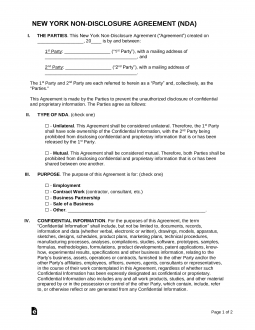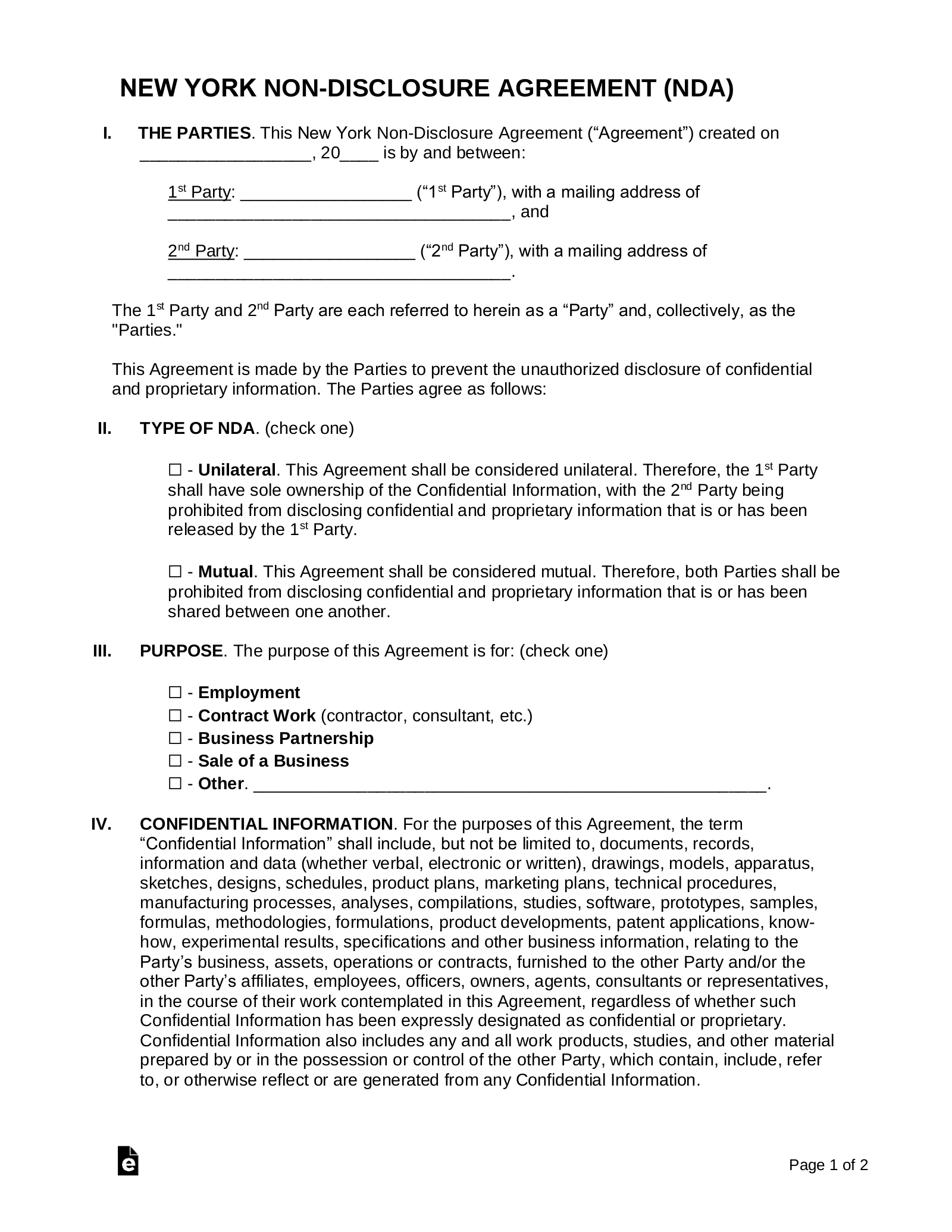Updated November 07, 2023
A New York non-disclosure agreement is a binding arrangement between two parties that agree to not share confidential information with third parties or the general public. Confidential information commonly refers to “trade secrets,” which gives an advantage over a business competitor.
If shared without permission, the releasor of such information could lead to financial damages against the individual.
Definition
“A trade secret, by definition, must have economic value and provide a competitive advantage due to the exclusive use of a product or technique.”
Source: Zirvi v. Flatley (2020)
Common Law
New York is the only State without trade secrets statutes and relies on common law (previous court cases) and the Defend Trade Secrets Act (18 U.S. Code § 1832).
Punishment for the sharing of trade secrets, in E.J. Brooks Co. v. Cambridge Sec. Seals (2018), found that “compensatory damages must return the plaintiff, as nearly as possible, to the position it would have been in had the wrongdoing not occurred—but do no more.”
Therefore, a party that can prove damages by shared trade secrets cannot make claims any more than what they can prove to have been financially harmed.
Involvement of Discrimination
No employer can create a non-disclosure agreement or any settlement prohibiting a party from releasing a “factual foundation” for discrimination unless it is the victim’s preference to make it confidential.
If it is in the victim’s preference to make it confidential, they are entitled to 21 days to consider such an agreement. If signed after the 21-day period, the victim will have another 7 days to revoke the agreement at their sole discretion.
Source: GOB § 5-336
Video



